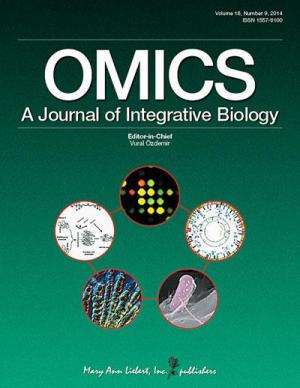Can genetic engineering help food crops better tolerate drought?

The staggering growth rate of the global population demands innovative and sustainable solutions to increase food production by as much as 70-100% in the next few decades. In light of environmental changes, more drought-tolerant food crops are essential. The latest technological advances and future directions in regulating genes involved in stress tolerance in crops is presented in a Review article in OMICS: A Journal of Integrative Biology.
Coauthors Roel Rabara and Paul Rushton, Texas A&M AgriLife Research and Extension Center, Dallas, TX, and Prateek Tripathi, University of Southern California, Los Angeles, focus on the role of transcription factors, described as "master regulators" because they are important components of many genetic regulatory pathways and may be able to control clusters of genes. Drought tolerance is a complex trait that is regulated by multiple genes.
In the article "The Potential of Transcription Factor-Based Genetic Engineering in Improving Crop Tolerance to Drought," the authors describe current strategies for using transcription factors to improve drought tolerance and discuss how novel, advanced technologies will help study promising, genetically engineered food crops under field growing conditions.
"With limited water supply continuing to constrain food crop production, understanding and improving crop tolerance to drought is a grand challenge for 21st century biology and medicine, and to feed a massive world population," says OMICS Editor-in-Chief Vural Özdemir, MD, PhD, DABCP, Gaziantep University, Faculty of Communications and Office of the President, Gaziantep, Turkey, and Co-Founder, the Data-Enabled Life Sciences Alliance International (DELSA Global), Seattle, WA. "Transcription factors are veritable candidates for innovation in the next generation of transgenic crops because of their natural role in plant growth and development. Field studies (not only greenhouse measures) will provide additional insights to measure their actual impact and innovation. This state of the art review article offers a timely analysis and topline summary distilled from the past several decades of leading literature."
More information: The article is available free on the OMICS website.
Provided by Mary Ann Liebert, Inc

















